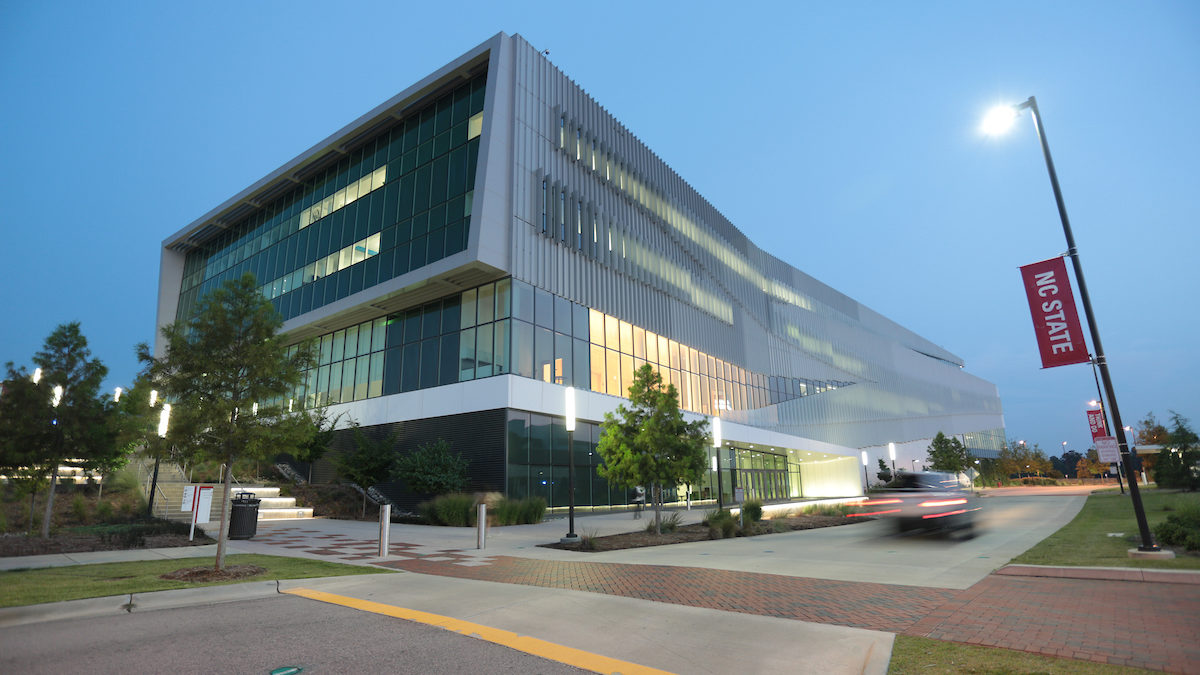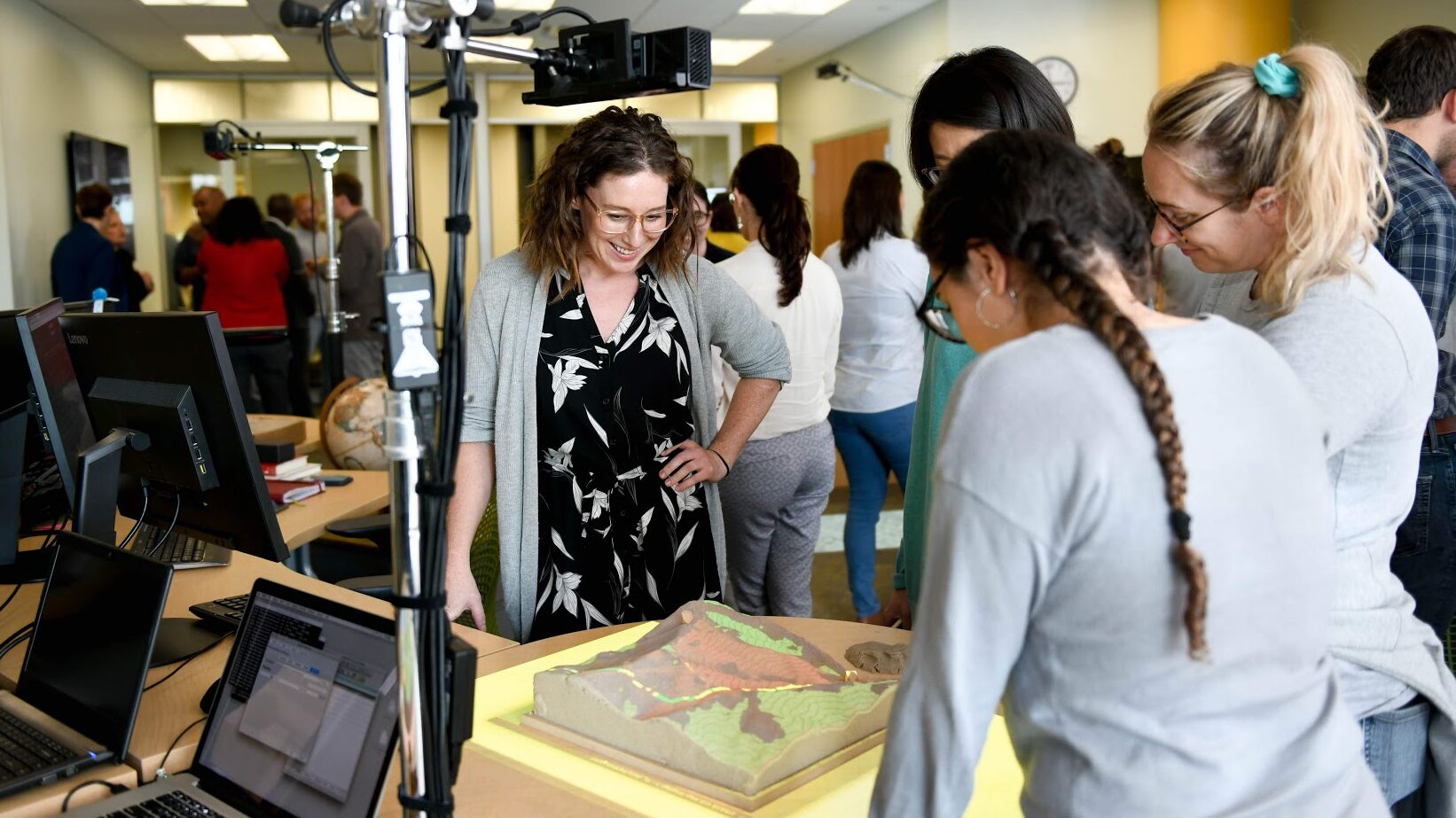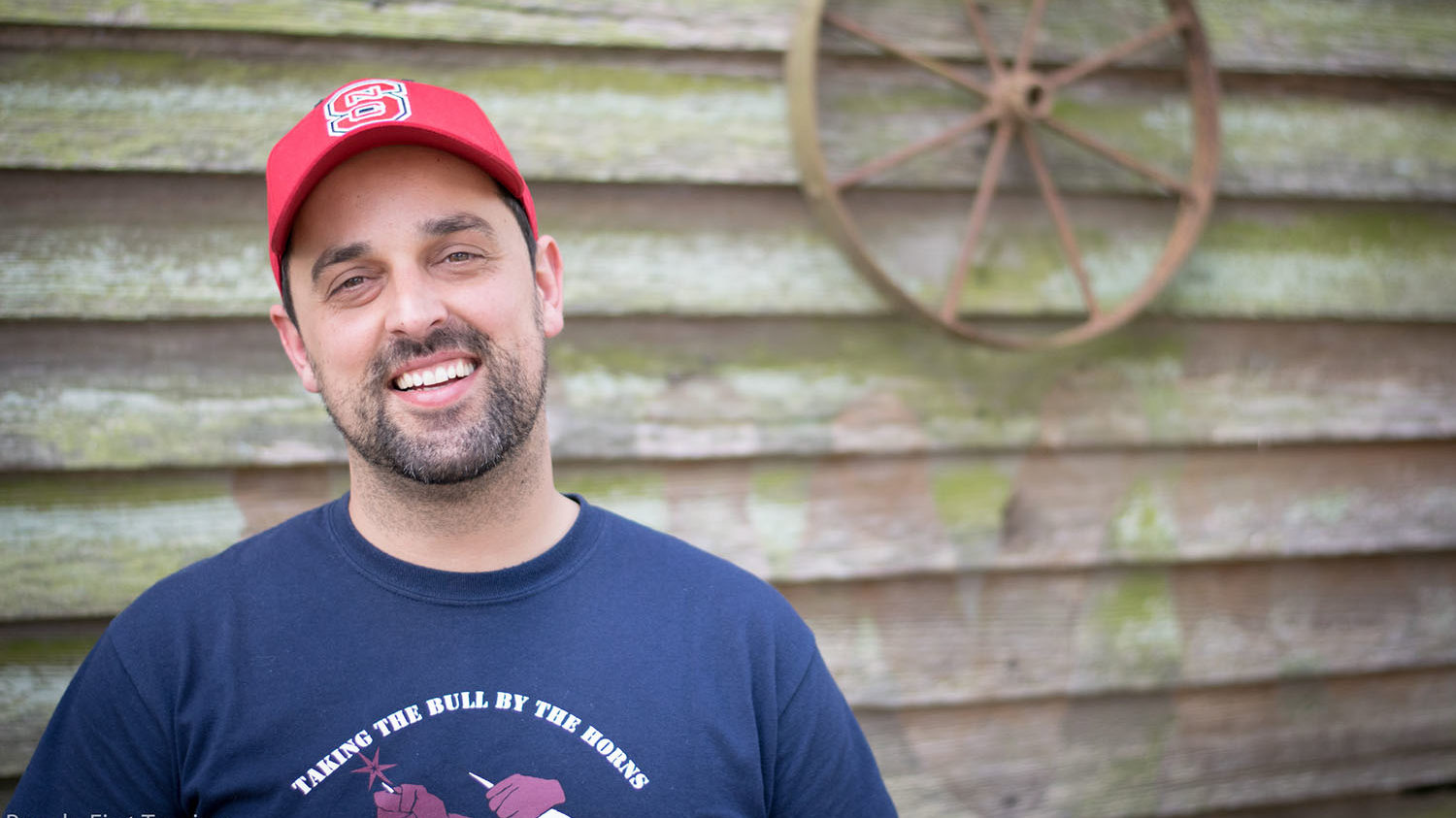Turning Black Roads Green
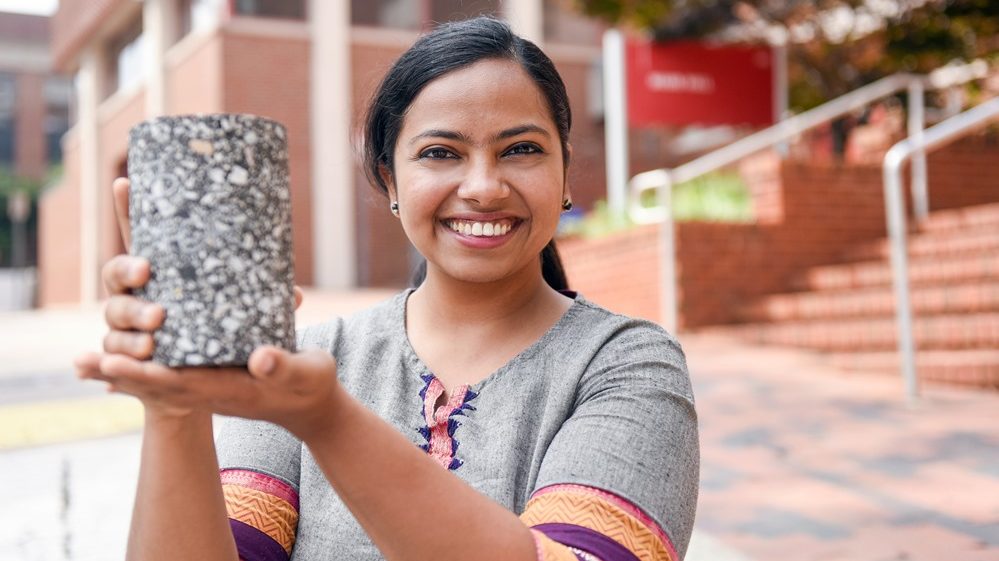
Haritha Malladi spent five years of graduate school at NC State working on strategies for recycling old asphalt by incorporating it into new roads. So after earning her Ph.D. in December, she set out to see some of the United States roads for herself—more than 10,000 miles of roads, to be exact.
While completing her research in civil engineering last fall, Malladi won first place in the Graduate School’s first 3 Minute Thesis competition, where Ph.D. candidates describe their research in just three minutes. In February, she won second place out of 38 competitors in the Southern region 3MT competition, with her presentation, Reduce and Recycle: How to Turn Black Roads Green.
From December through February, Malladi spend two months exploring the United States’ vast road network. “I’m a roads person, and I couldn’t think of a better way to explore than to just get in my car and drive,” she said.
She traveled 10,700 miles (not including a prior trip of 2,800 miles to Florida), north to Lake Ontario, west to the Hoover Dam in Nevada and south to New Orleans. She stayed with friends, “couch-surfed” and camped in some wilderness areas.
She was most impressed with the engineering achievement of Hoover Dam, which brought water and power to the Southwest. She marveled at the levees and locks of the Mississippi River that made life in New Orleans possible, and she witnessed the city’s continuing recovery from Hurricane Katrina.
She was also struck by the maintenance needs facing U.S. infrastructure. “The U.S. infrastructure isn’t doing that well—much of it was created years ago,” she said. “We need to invest to keep it up to grade.”
In her 3 Minute Thesis presentation, Malladi described how the U.S. road system is the longest in the world—so long that it could circle the globe 100 times. It was one of the images that Malladi used to connect with a lay audience, and it resonated with 3MT judges.
Malladi has a true passion for communicating science to a lay audience, which is why she chose to enter the 3 Minute Thesis competition. Last year, she participated in the 2015 Triangle ComSciCon, a science communications workshop for graduate students, where participants were challenged to present their research in one-minute “pop talks.”
“Compared to 60 seconds, three minutes seemed like a really long time,” she said.
Scientists may balk at communicating their work because science can be intimidating for a lay audience. But Malladi believes that it’s important for scientists to be able to distill their work into concepts and terms that anyone can understand.
“I’ve always been really interested in science communication,” she said. “I think it’s important for a scientist, a grad student, to be able to explain his or her research to a lay audience, especially in these times. If the public doesn’t understand your science, they don’t really have a motivation to invest in it.
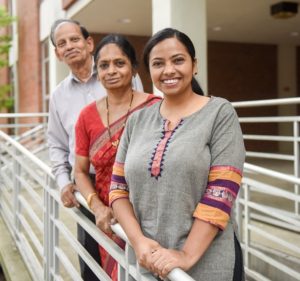
“A lot of people are afraid of science; they think it’s beyond them, but really it’s not,” she said. “Science is just a way to describe the world around us and to think of solutions to problems. So it’s important for all of us (in the research world) to be able to do that.”
One of the biggest challenges of 3MT, Malladi said, was creating a single slide to depict her research. “I had to think a lot about that,” she said. “As scientists, we love our graphs and pictures, but sometimes they don’t translate that well.”
For her slide, she chose simple images—a road map of the United States and a green plant emerging from black asphalt—and short text to make her case for the importance of recycling asphalt.
At the regional 3MT competition, first-place winners from 38 institutions competed in four heats on February 20. The next morning, eight finalists were named from the heats, and all immediately went into the final round of competition. Malladi was one of three competitors who tied for second place.
Her biggest regret, however, was not being able to hear presentations from the 37 other competitors. “I wish I could have seen all the presentations,” she said. “These people have won at their universities and have come (to the regional competition), so clearly they know how to present and are good communicators.”
The concept of mixing old asphalt into new asphalt in road construction is not new, Malladi said. The U.S. has recycled asphalt since 1970s, making it one of best recycled products in the country. And because the U.S. has such a vast roads network that must constantly be maintained, there is a growing need to utilize more old asphalt in new road construction.
But Malladi said that contractors are not that interested in switching to a softer binder, the sticky black material that binds road construction components together. Her research found that the softer binder shunned by contractors wasn’t necessary for adding recycled asphalt.
“You can just do as you normally do and just use warm-mix (asphalt) technology and be able use up to 40 percent recycle material, and it performs just as well,” she said.
In addition, Malladi conducted performance tests on such asphalt to determine its susceptibility to moisture damage and to rutting—the wavy tire patterns that sometimes appear in roads. The material performed well, she said.
Malladi has returned to NC State as a postdoctoral scholar in civil engineering, solving another problem: skid resistance of pavements with crack sealants. She will also teach an undergraduate section of statistics.
Malladi’s interest in research and teaching come naturally—her father is a physicist, who retired from the Indian Space Research Organization, the NASA of India. When Haritha Malladi won the 3MT in October, her father Dr. Satyanarayana Malladi posted a comment on the Graduate School News page, saying, “Hearty congratulations to all the 3 MT winners. I am doubly happy as the proud father of Ms. Haritha Malladi.”
Even in retirement, Haritha’s father is teaching full-time, as she aspires to do. The apple doesn’t fall far from the tree.
Read more from the Graduate School’s Think Magazine.
Download this article as a PDF.
- Categories:
